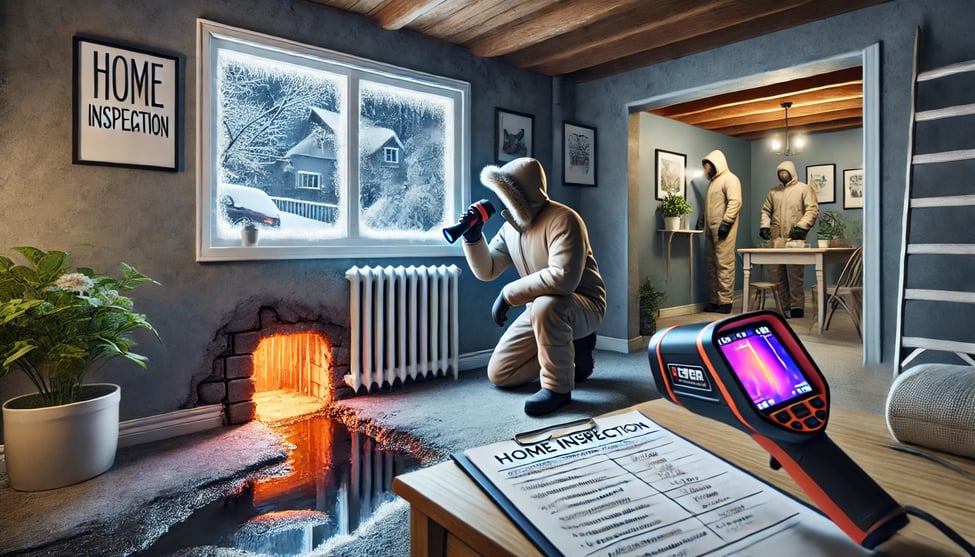Buying a home is one of the biggest financial decisions you'll ever make, and a home inspection plays a crucial role in ensuring you're making a sound investment. But what happens when the inspection uncovers issues that weren’t initially apparent? This is where renegotiation comes into play.
Understanding how to renegotiate after a home inspection can save you thousands of dollars and help you make a more informed decision. In this guide, we’ll explore how the process works, what you can negotiate, and how to approach sellers in a way that keeps the deal moving forward.
Why Renegotiation Happens After a Home Inspection
A home inspection provides an unbiased evaluation of the property’s condition, helping buyers identify potential red flags. While some minor issues can be overlooked, more significant problems—such as structural concerns, plumbing leaks, electrical issues, roofing damage, or mold—may require a second look at the purchase agreement.
Buyers typically renegotiate after a home inspection for three main reasons:
Significant Repairs Needed – If the inspection uncovers major problems, the buyer may ask the seller to fix them before closing.
Financial Compensation – Instead of requesting repairs, some buyers prefer a price reduction or seller credit to handle the issues themselves after moving in.
Walkaway Option – If the inspection reveals severe problems that impact the home’s safety or value, buyers may choose to walk away from the deal, depending on the terms of the contract.
What Can You Negotiate After a Home Inspection?
Once you receive the inspection report, it’s time to assess what issues are worth renegotiating. Here are the most common negotiation points:
Repairs – Buyers can request the seller to fix certain issues before closing. This is common when dealing with safety hazards or structural concerns.
Price Reduction – Instead of having the seller handle repairs, buyers may request a reduction in the purchase price to cover the estimated costs.
Seller Credits – In some cases, buyers may negotiate for a credit at closing, which can be used to offset repair costs.
Home Warranty – Some buyers ask for a home warranty from the seller to cover any unforeseen issues after moving in.
Closing Costs Assistance – If repair costs are high, buyers may negotiate for the seller to cover a portion of the closing costs to offset expenses.
How to Approach a Seller When Renegotiating
Sellers are not obligated to agree to renegotiations, so how you approach the conversation is critical. Here are some tips to make the process smoother:
Be Reasonable – Focus on major concerns rather than nitpicking minor cosmetic flaws.
Provide Evidence – Use the inspection report to back up your requests. Highlight issues that are safety hazards or expensive to fix.
Prioritize Requests – If multiple issues arise, determine which ones are most important and focus on those.
Be Open to Compromise – Understand that sellers may not agree to all requests, so be flexible and willing to negotiate.
Use Your Real Estate Agent – An experienced real estate agent can help you craft a reasonable request and negotiate on your behalf.
When to Walk Away
Sometimes, renegotiations don’t go as planned, and the seller may refuse to budge. If the issues uncovered in the inspection are deal-breakers—such as foundation problems, severe water damage, or outdated electrical systems—it may be best to walk away if the seller isn’t willing to negotiate.
Having an inspection contingency in your contract allows you to back out of the deal without penalty if major problems arise. Always consult with your agent and weigh the costs before making a final decision.
How Collab Realty Group Eliminates Last-Minute Negotiations
At Collab Realty Group, we take a proactive approach when listing homes. We provide a complimentary Pre-Home Inspection for all our listings. This allows us to get ahead of the game, make necessary price adjustments or repairs, and eliminate negotiations at the 11th hour. By addressing potential concerns early on, we create a smoother transaction for both buyers and sellers, ensuring a more seamless closing process.
Final Thoughts
Renegotiating after a home inspection is a normal part of the home-buying process. Whether you request repairs, a price reduction, or seller credits, the key is to approach the situation with fairness and professionalism. By understanding your options and working with a knowledgeable real estate agent, you can ensure that your home purchase is a wise investment.
If you have any questions about home inspections and the renegotiation process, feel free to reach out. Our team at Collab Realty Group is here to help make your home-buying journey smooth and stress-free!

